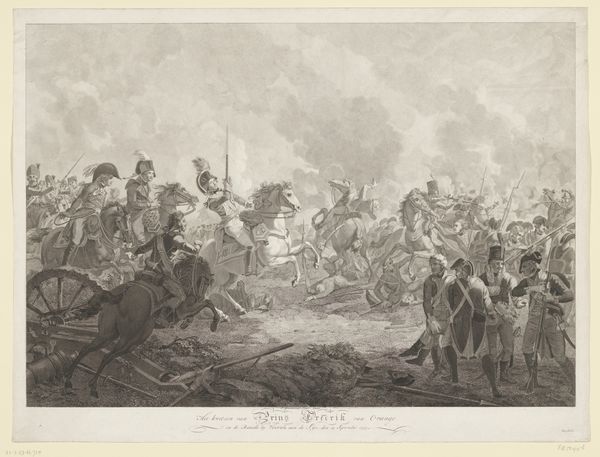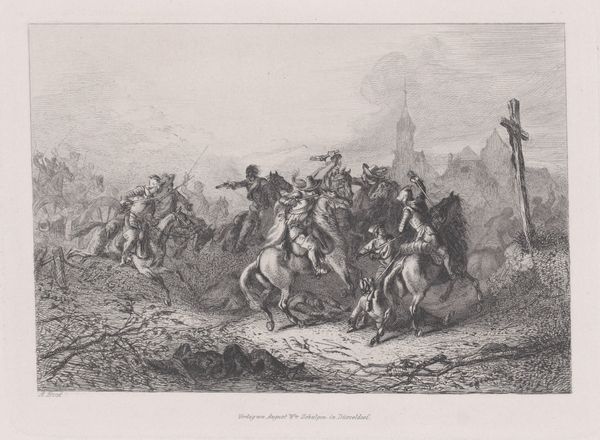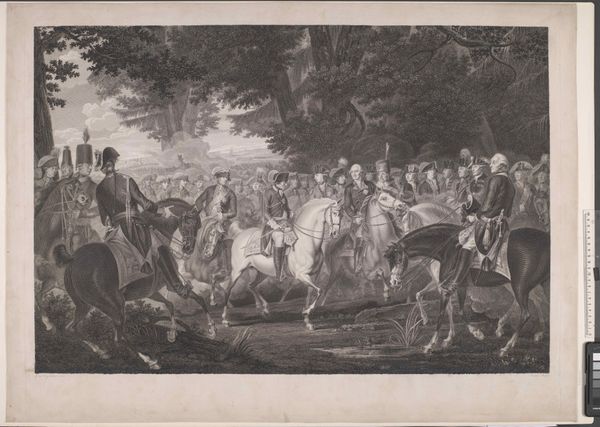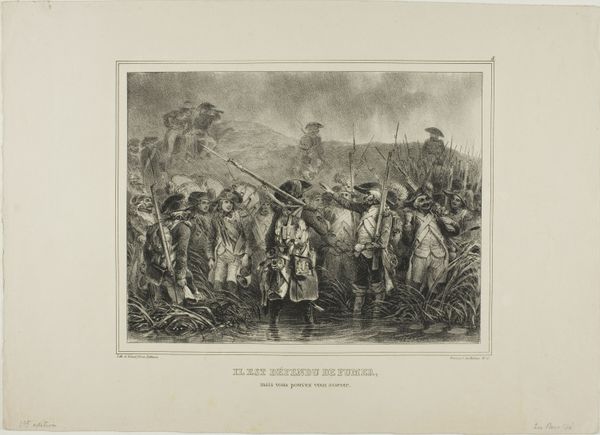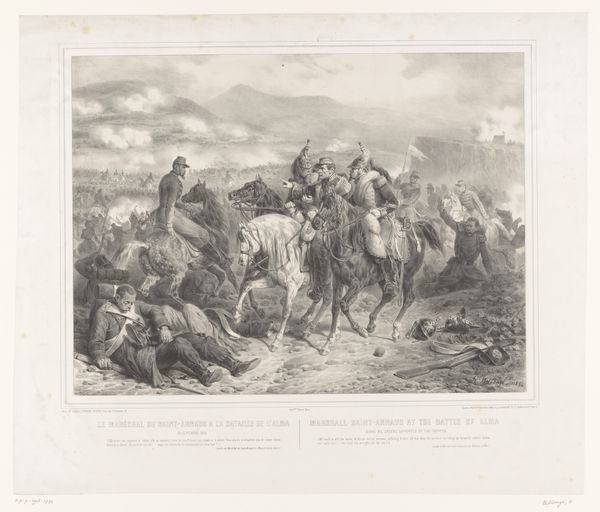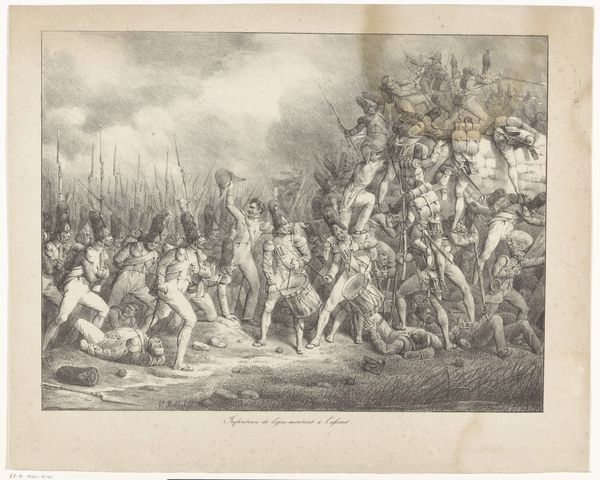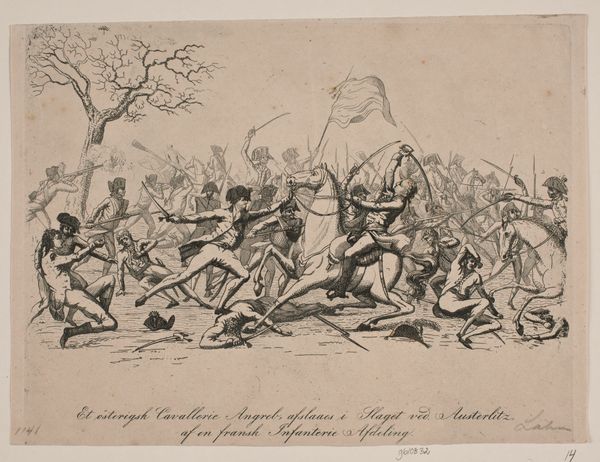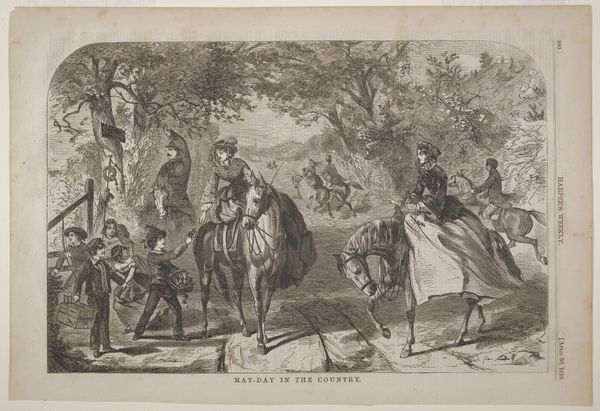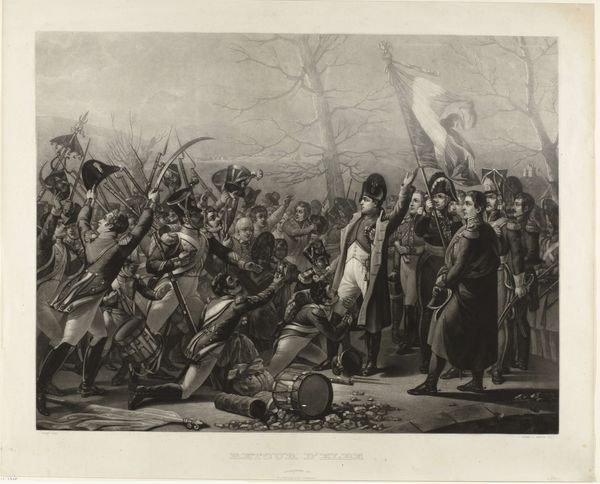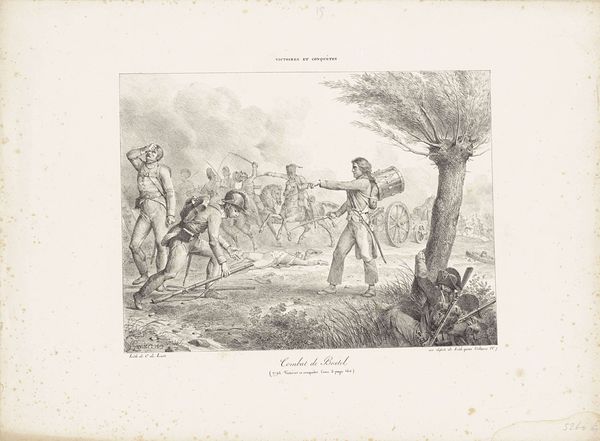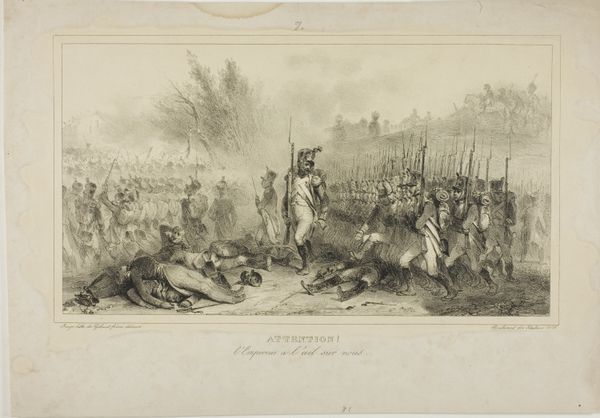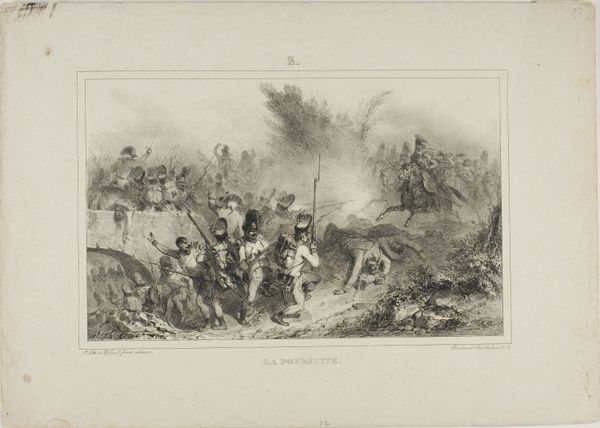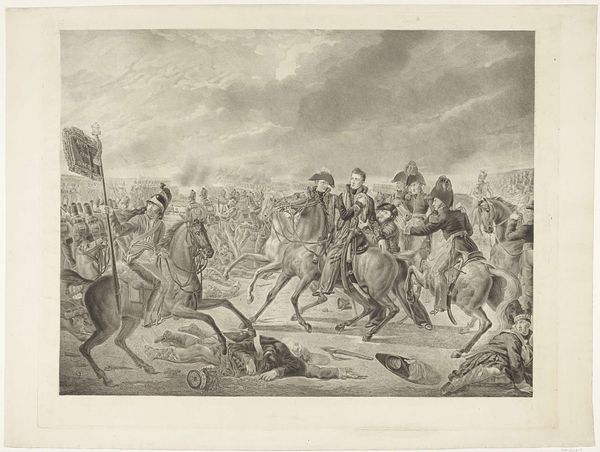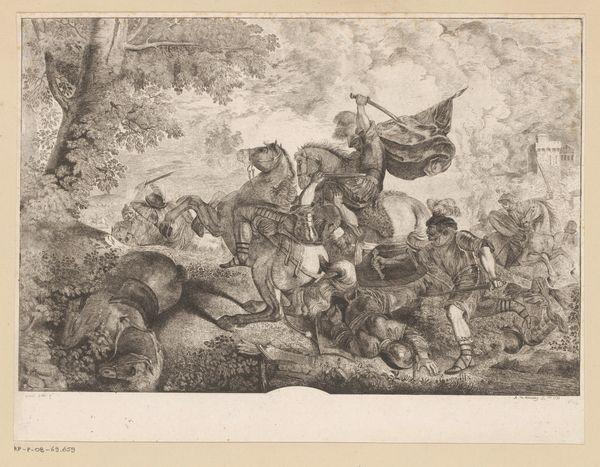
print, etching, engraving
#
portrait
#
pencil drawn
#
light pencil work
#
photo restoration
# print
#
etching
#
pencil sketch
#
landscape
#
charcoal drawing
#
pencil drawing
#
19th century
#
pencil work
#
history-painting
#
academic-art
#
engraving
Dimensions: height 511 mm, width 689 mm
Copyright: Rijks Museum: Open Domain
Editor: Here we have "George Washington in de Slag bij de Monongahela," created in 1854 by Claude Régnier. It's an etching and engraving, so a print, depicting a pretty chaotic battle scene. What immediately strikes me is the almost cinematic composition, with Washington seemingly unmoved amidst the frenzy. What do you make of it? Curator: It is indeed a moment frozen in time, a highly romanticised version of history as told through 19th century eyes, isn't it? Forget the smoke and fury of battle; we’re invited instead to witness the stoic heroism of a man already destined for greatness. Think of it not as a faithful recreation, but a stage setting; consider what stories that set is meant to evoke in the viewer. What details grab you most in thinking of the story of the moment portrayed? Editor: I’m drawn to the light. It feels like a divine spotlight is shining on Washington, setting him apart. Also, the inclusion of the indigenous fighters feels…well, complex, considering the historical context. Curator: Ah, yes, the light! That ethereal glow isn’t just illuminating a hero; it’s actively myth-making. Think about it - What are they meant to signify beyond a visual representation of conflicting sides? Do you think the artist tried to comment on that history? Editor: Maybe a romantic, albeit misguided, attempt at portraying complexity, yet ultimately perpetuating a certain narrative. It is striking how staged and unnatural it all feels, given the real horror of conflict. Curator: Exactly! Perhaps it invites us to reflect on how history itself is constructed, not just through events, but also through their artistic interpretations. I leave this viewing with more questions than answers, actually! Editor: That's the beauty of art, isn’t it? Always more to see, to question, to feel. I see that now!
Comments
No comments
Be the first to comment and join the conversation on the ultimate creative platform.
